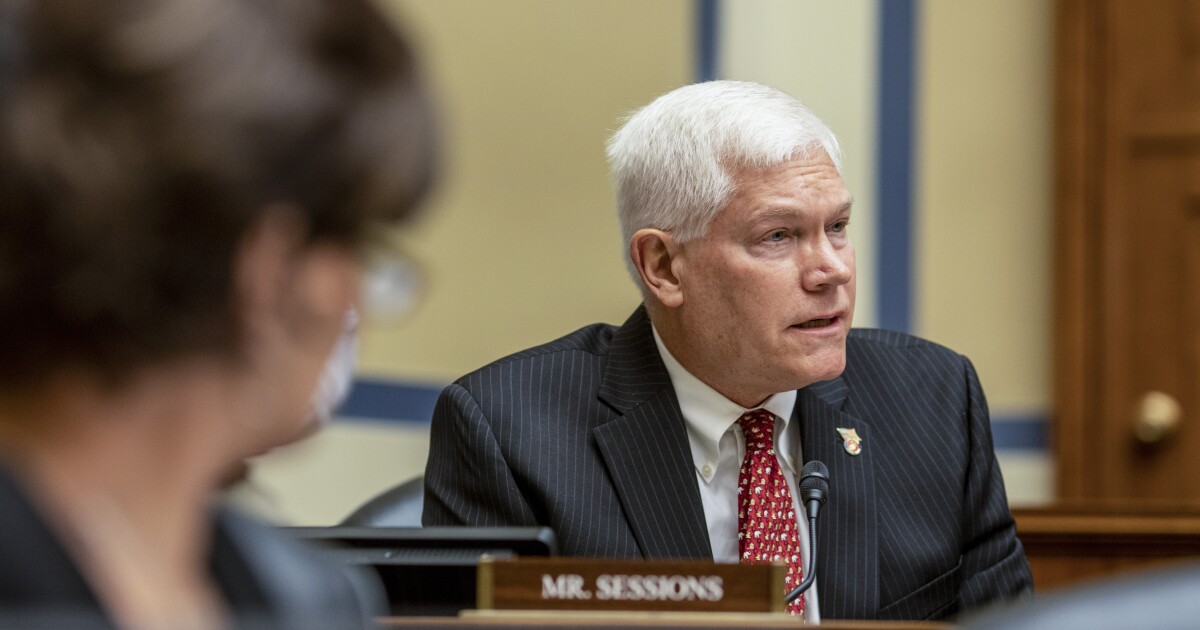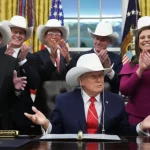

Rep. Pete Sessions (R-TX) has held leadership positions in the House before, but now he is running for the highest position, speaker of the House.
First elected to the House in 1996, Sessions has served as the chairman of the National Republican Congressional Committee and as chairman of the House Rules Committee. He has the most experience out of any of the nine candidates running for speaker.
BIDENOMICS IS GOING BELLY-UP WHERE IT MATTERS MOST
He served in the House until 2019, when he was beaten by Rep. Collin Allred (D-TX). Then, the next cycle, Sessions ran in a different district in his hometown of Waco, Texas, and won in a runoff in the primary and handily took the general election.
With such a crowded field, standing out is going to be difficult, but Sessions believes his years of experience and his past roles in leadership can be a selling point for him as he goes into the race. He is up against Reps. Kevin Hern (R-OK), Mike Johnson (R-LA), Dan Meuser (R-PA), Jack Bergman (R-MI), Gary Palmer (R-AL), Byron Donalds (R-FL), Austin Scott (R-GA), and House Majority Whip Tom Emmer (R-MN).
Sessions led the NRCC, the campaign arm of House Republicans, from 2009-2013 and led the group when Republicans gained 63 seats in the House in 2010, the largest net gain by Republicans since 1946.
“I think people, whether it’s heart surgery or fixing your plumbing in your house or your roof, or your banker, you want to go to someone that you can trust with a proven ability. Who knows what they’re doing, who knows what time it is, and sees what is on the full plate and over the horizon,” Sessions said in an interview with the Washington Examiner.
If elected, Sessions said his priority would be to immediately deal with the government funding deadline and ensure that the government does not shut down.
While he would not provide specifics on his plan to avoid a shutdown or what a continuing resolution he would put forward would look like, he did emphasize that it would have to be done starting “this week,” and if elected speaker, he wants to spend “the next few weeks” focusing on avoiding a government shutdown and sending something to the Senate before they can send something to the House.
Another priority of his is agriculture. Sessions was chairman of the Rules Committee the past two times a farm bill has passed, and he believes that agriculture and food security are some of the most important issues that Congress handles. And, with Congress set to take up a farm bill sometime this session, he believes he can help lead it across the finish line.
“Food security is national security,” Sessions said. “That’s one of the most important things we have to get done. And we would, under my leadership or under the ability, just move it to the floor and work it hard.”
Candidates are set to make their pitch to the entire House Republican Conference on Monday at 6:30 p.m., where they will each get a chance to make an opening statement and answer questions from their colleagues.
Sessions said he will go into the candidate forum on Monday viewing it as a job interview, and he believes his historical knowledge and years of experience will be a selling point for people. On top of that, the Texas Republican believes that after serving as NRCC chairman, he can come in and already have the national fundraising connections to raise money for members and help in the 2024 election.
But, winning the nomination in conference is just one step in the process of becoming speaker, as has been seen with the past two nominees out of conference — House Majority Leader Steve Scalise (R-LA) and Rep. Jim Jordan (R-OH) — both of whom were blocked from becoming speaker by their fellow Republicans, highlighting the divide and chaos that has overwhelmed the conference this year.
CLICK HERE TO READ MORE FROM THE WASHINGTON EXAMINER
Now, Sessions believes he’s the right guy to lead the conference and unite them at this pivotal moment and thinks if he’s the nominee, he can win the 217 votes necessary on the floor.
“My sell is we need somebody that knows what time it is, we need somebody to know what the job is, we need somebody know what’s over the horizon, and we need to be able to put our ducks in a row to go achieve them very quickly because we are closer to losing people’s attention,” he said. “ And I think I have that ability to unite our conference.”





